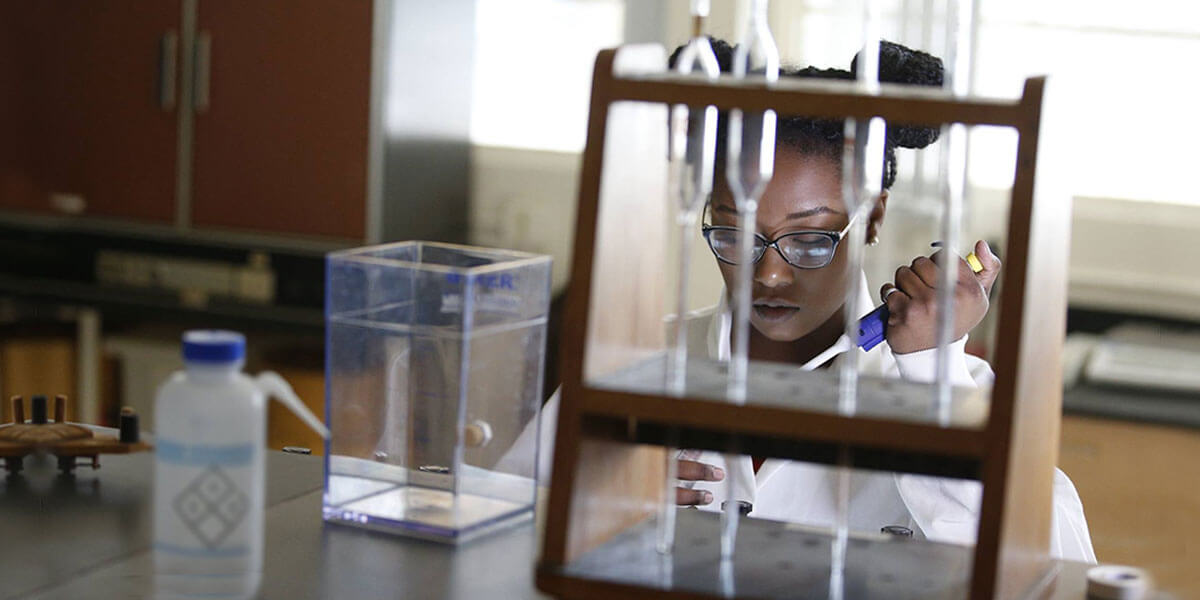
Tranice’ Warner in the lab (Photo/Courtesy of Tranice’ Warner)
Tranice’ Warner, a 22-year-old environmental engineering Ph.D. student in the Sonny Astani Department of Civil & Environmental Engineering, is working to reduce the energy demand of treating wastewater.
Wastewater and human existence directly coincide; as the population continues to increase, so will the demand for wastewater treatment. Currently, treating wastewater is an energy intensive process. By developing new materials for membrane filtration that mitigate the overall energy consumption, the carbon footprint, capital, and operating cost of treatment can be greatly reduced, thus creating a more sustainable system.
The clarity of Warner’s academic vision has garnered her nationwide recognition. Earlier this year, Warner received a National Science Foundation Graduate Research Fellowship that recognizes the most outstanding graduate students in STEM fields. The fellowship will fully fund Warner’s doctoral degree, as well as offer additional funding when she travels to academic conferences. Winners of the fellowship have included 42 Nobel Laureates, 450 members of the National Academy of Sciences, one Google founder, Sergey Brin, and, now, Tranice’ Warner.
“The NSF GRFP fellowship will allow me to focus more of my time and energy on developing my research,” Warner said. “I am very grateful for the award.”
Warner will soon enter the lab herself, where USC Viterbi professors Adam Smith and Amy Childress will co-advise her. There, she will begin fabricating novel membrane materials that could potentially reduce the energy demand in wastewater treatment systems and improve the final quality of the treated water.
Warner hopes that her membranes will reduce the occurrence and severity of membrane fouling, in which particles deposited on a membrane surface clog the membrane pores and increase the pressure and energy required to filter water through the membrane area. By mitigating membrane fouling, the overall energy demand could be reduced, thus creating a more sustainable system. If applied to wastewater treatment plants, she said, such membranes could greatly improve their efficiency.
Warner has a longstanding commitment to water resources. She decided to study at a California university because the state was at the forefront of water technology. Simply put, Warner wanted to be close to the action.
At Fresno State, where she received her undergraduate degree in civil engineering, Warner, a full scholarship recipient, worked primarily on wastewater-related research projects. Her excellence within the field as an undergraduate piqued the interest of Childress and Smith, who both wanted her in their labs after reading her USC application.
Warner’s interest in water began in high school when a social studies teacher urged her to write an essay to submit for a scholarship with the Oscar Merit Foundation. Initially reluctant, Warner wrote a paper on how the United Nations could work to fulfill its longstanding initiative of guaranteeing clean water and sanitation as a basic human right. She won the scholarship, which provided funds for college, and flew to New York City to give a speech at the United Nations Headquarters.
“And that was the basis for all of this,” Warner said. “That’s where it all began.”
Published on October 17th, 2018
Last updated on October 17th, 2018











